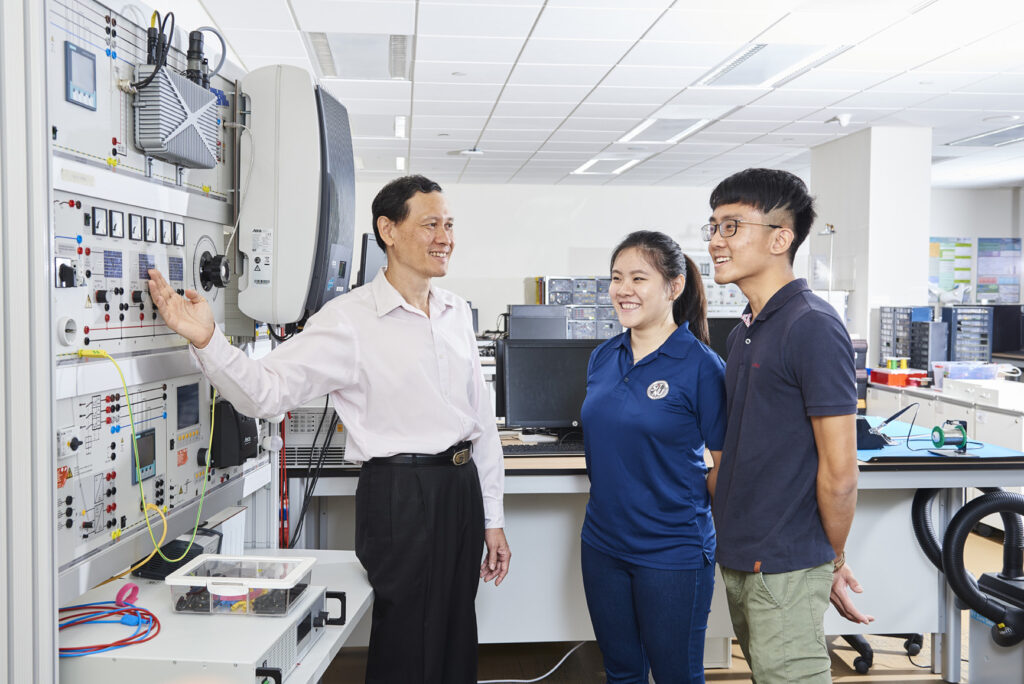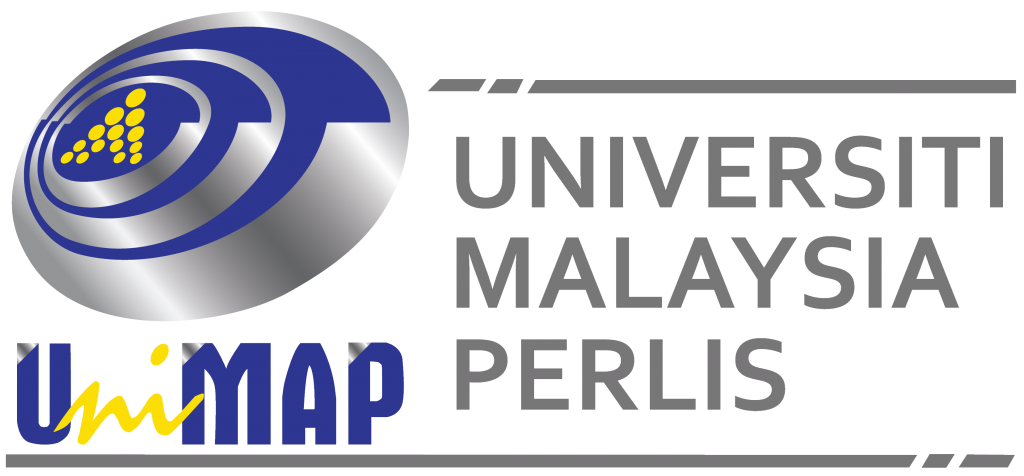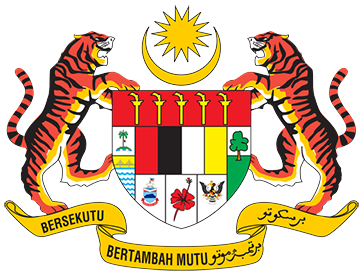Bachelor of Mechatronic Engineering With Honours
Ijazah Sarjana Muda Kejuruteraan Mekatronik dengan Kepujian
- Overview
- Career Path
- Subject
- Fees / Entry Requirement
This programme aims to produce professional personnel with strong knowledge foundation and skills in the field of Mechatronics Engineering. Graduates are expected to have high level of professionalism. Therefore, the curriculum structure is designed to give the students the ability to analyze, design, operate and maintain electrical and electronics equipments, mechanical, computer software and information technologies.
Apart from the core engineering courses, students are also provided with soft skills such as ethics, management, entrepreneurship, communication and thinking skills. In addition, students are required to undergo industrial training aimed at equipping them with technical knowledge from the industry.
Graduates of this program have broad employment prospects in private companies, industry, government departments and statutory bodies. It covers areas such as engineering, production, research, design, analysis, development, testing and other related fields.
The related career opportunities, among many, and not related to:
1
Mechatronic Engineer
2
Control and Instrumentation Engineer
3
System Engineer
4
R&D Engineer
5
Automation Engineer
6
Robotics Engineer
7
Academicians
CORE COURSES:
Semester 1
- EMJ16103 Electric Circuit Theory
- EMJ16203 Engineering Statics
- EMJ16302 Principles of Engineering Materials
- EMJ16403 Mechatronic Engineering Practices
- SMQ10103 Engineering Mathematics I
- SMU13002 Philosophy and Current Issues
- SMZXX01 Co-curriculum
- SMB10102 Prepatory English
Semester 2
- EMJ17104 Analog Electronics
- EMJ17303 Computer Aided Drawing
- EMJ17203 Engineering Dynamics
- EMJ10003 Computer Programming
- SMQ10203 Engineering Mathematics II
- SMU13102 Appreciation of Ethics and Civilization
Semester 3
- EMJ26103 Signal and Linear Systems
- EMJ26203 Digital Logic Circuit
- EMJ26303 Instrumentation and Measurements
- EMJ26402 Principles of Engineering Thermofluids
- EMJ26703 Design of Machinery
- SMQ20303 Engineering Mathematics III
- SMZXX01 Co-curriculum II
Semester 4
- EMJ27403 Network and Communication System
- EMJ27303 Electromagnetic Field Theory
- EMJ27103 Power Electronics
- EMJ27204 Embedded System and Interfacing
- SMQ27103 Engineering Statistics
- SMB20102 Option/English for General Communication
Semester 5
- EMJ36103 Control Engineering I
- EMJ36203 Machine Vision
- EMJ36303 Fluid Power System
- EMJ36404 Electrical Machines & Power System
- SMU12202 Skills and Technology in Communication
- SMB31202 English for Technical Communication
Semester 6
- EMJ37103 Control Engineering II
- EMJ37203 Mechatronic System Design I
- EMJ37303 Robotic Systems
- EMJ37403 Artificial Intelligence for Mechatronic Eng.
- SMU32202 Thinking Skills
- SDU22402 Engineering Entrepreneurship
- SMB41002/SMB11002 University Malay Language/Basic Malay Lang.
Semester Break
- EMJ30004 Industrial Training
Semester 7
- EMJ40002 Final Year Project I
- EMJ47204 Mechatronic System Design II
- EMJ47104 Automation
- EMJ40103 Engineering Management
- EMJ4XX03 Elective I
Semester 8
- EMJ40004 Final Year Project II
- EMJ47002 Production and Quality Control
- EMJ40202 Professional Engineer
- EMJ4XX03 Elective II
Electives Courses
| Area | Elective I | Elective II |
| Control and System Integration | EMJ47503 Advanced Control Engineering | EMJ48503 System Identification & Parameter Estimation |
| Robotics and Automation | EMJ47603 Autonomous Mobile Robots | EMJ49803 Advanced PLC Systems |
| Artificial Intelligence and Machine Learning | EMJ47703 IoT & Data Analytics | EMJ48703 Smart System Design |
Click button below for more details on education fees and entry requirements.
- Programme Objectives (PEO)
- Programme Outcome (PO)
The educational objectives of the program are to have students that will achieve the following in their professional career after graduation:
1
Graduates who have demonstrated career advancement in the field of Mechatronic Engineering or related engineering field.
2
Graduates who are involved in a professional body or society.
3
Graduates who pursue lifelong learning.
The program outcomes are applicable to Bachelor Of Electrical Engineering Technology (Hons.) (Industrial Power). The student outcomes are the following learned capabilities:
1
Apply knowledge of mathematics, natural science, engineering fundamentals and an engineering specialization to the solution of complex engineering problems.
2
Identify, formulate, conduct research literature and analyse complex engineering problems reaching substantiated conclusions using first principles of mathematics, natural sciences and engineering sciences.
3
Design solutions for complex engineering problems and design systems, components or processes that meet specified needs with appropriate consideration for public health and safety, cultural, societal, and environmental considerations.
4
Conduct investigations of complex problems using research-based knowledge and research methods including design of experiments, analysis and interpretation of data, and synthesis of information to provide valid conclusions.
5
Create, select and apply appropriate techniques, resources, and modern engineering and IT tools, including prediction and modelling, to complex engineering problems, with an understanding of the limitations.
6
Apply reasoning informed by contextual knowledge to assess societal, health, safety, legal and cultural issues and the consequent responsibilities relevant to professional engineering practice and solutions to complex engineering problems.
7
Understand and evaluate the sustainability and impact of professional engineering work in the solution of complex engineering problems in societal and environmental contexts including ability to have entrepreneurship skills.
8
Apply ethical principles and commit to professional ethics and responsibilities and norms of engineering practice.
9
Function effectively as an individual, and as a member or leader in diverse teams and in multidisciplinary settings.
10
Communicate effectively on complex engineering activities with the engineering community and society at large, such as being able to comprehend and write effective reports and design documentation, make effective presentations and give and receive clear instructions.
11
Demonstrate knowledge and understanding of engineering management principles and economic decision-making and apply these to one’s own work as a member and leader in a team, to manage projects and in multi-disciplinary environments.
12
Recognise the need for and have the preparation and ability to engage in independent and life-long learning in the broadest context of technological change.

Quick Points
Campus:
Kampus Alam Pauh Putra, Perlis
Programme Code:
RK24 (intake 2013 – 2019)
UR6523003 (intake 2020 - curent)
Specialisation
Mechatronic Engineering/Robotics Engineering/Automation Engineering
Study Level:
Undergraduate
Intake:
July
Duration:
4 Years
- Overview
This programme aims to produce professional personnel with strong knowledge foundation and skills in the field of Mechatronics Engineering. Graduates are expected to have high level of professionalism. Therefore, the curriculum structure is designed to give the students the ability to analyze, design, operate and maintain electrical and electronics equipments, mechanical, computer software and information technologies.
Apart from the core engineering courses, students are also provided with soft skills such as ethics, management, entrepreneurship, communication and thinking skills. In addition, students are required to undergo industrial training aimed at equipping them with technical knowledge from the industry.
Graduates of this program have broad employment prospects in private companies, industry, government departments and statutory bodies. It covers areas such as engineering, production, research, design, analysis, development, testing and other related fields.
Career Path
The related career opportunities, among many, and not related to:
1
Mechatronic Engineer
2
Control and Instrumentation Engineer
3
System Engineer
4
R&D Engineer
5
Automation Engineer
6
Robotics Engineer
7
Academicians
Subject
CORE COURSES:
Semester 1
- EMJ16103 Electric Circuit Theory
- EMJ16203 Engineering Statics
- EMJ16302 Principles of Engineering Materials
- EMJ16403 Mechatronic Engineering Practices
- SMQ10103 Engineering Mathematics I
- SMU13002 Philosophy and Current Issues
- SMZXX01 Co-curriculum
- SMB10102 Prepatory English
Semester 2
- EMJ17104 Analog Electronics
- EMJ17303 Computer Aided Drawing
- EMJ17203 Engineering Dynamics
- EMJ10003 Computer Programming
- SMQ10203 Engineering Mathematics II
- SMU13102 Appreciation of Ethics and Civilization
Semester 3
- EMJ26103 Signal and Linear Systems
- EMJ26203 Digital Logic Circuit
- EMJ26303 Instrumentation and Measurements
- EMJ26402 Principles of Engineering Thermofluids
- EMJ26703 Design of Machinery
- SMQ20303 Engineering Mathematics III
- SMZXX01 Co-curriculum II
Semester 4
- EMJ27403 Network and Communication System
- EMJ27303 Electromagnetic Field Theory
- EMJ27103 Power Electronics
- EMJ27204 Embedded System and Interfacing
- SMQ27103 Engineering Statistics
- SMB20102 Option/English for General Communication
Semester 5
- EMJ36103 Control Engineering I
- EMJ36203 Machine Vision
- EMJ36303 Fluid Power System
- EMJ36404 Electrical Machines & Power System
- SMU12202 Skills and Technology in Communication
- SMB31202 English for Technical Communication
Semester 6
- EMJ37103 Control Engineering II
- EMJ37203 Mechatronic System Design I
- EMJ37303 Robotic Systems
- EMJ37403 Artificial Intelligence for Mechatronic Eng.
- SMU32202 Thinking Skills
- SDU22402 Engineering Entrepreneurship
- SMB41002/SMB11002 University Malay Language/Basic Malay Lang.
Semester Break
- EMJ30004 Industrial Training
Semester 7
- EMJ40002 Final Year Project I
- EMJ47204 Mechatronic System Design II
- EMJ47104 Automation
- EMJ40103 Engineering Management
- EMJ4XX03 Elective I
Semester 8
- EMJ40004 Final Year Project II
- EMJ47002 Production and Quality Control
- EMJ40202 Professional Engineer
- EMJ4XX03 Elective II
Electives Courses
| Area | Elective I | Elective II |
| Control and System Integration | EMJ47503 Advanced Control Engineering | EMJ48503 System Identification & Parameter Estimation |
| Robotics and Automation | EMJ47603 Autonomous Mobile Robots | EMJ49803 Advanced PLC Systems |
| Artificial Intelligence and Machine Learning | EMJ47703 IoT & Data Analytics | EMJ48703 Smart System Design |
Fees / Entry Requirement
Click button below for more details on education fees and entry requirements.
Programme Objectives (PEO)
The educational objectives of the program are to have students that will achieve the following in their professional career after graduation:
1
Graduates who have demonstrated career advancement in the field of Mechatronic Engineering or related engineering field.
2
Graduates who are involved in a professional body or society.
3
Graduates who pursue lifelong learning.
Programme Outcome (PO)
The program outcomes are applicable to Bachelor Of Electrical Engineering Technology (Hons.) (Industrial Power). The student outcomes are the following learned capabilities:
1
Apply knowledge of mathematics, natural science, engineering fundamentals and an engineering specialization to the solution of complex engineering problems.
2
Identify, formulate, conduct research literature and analyse complex engineering problems reaching substantiated conclusions using first principles of mathematics, natural sciences and engineering sciences.
3
Design solutions for complex engineering problems and design systems, components or processes that meet specified needs with appropriate consideration for public health and safety, cultural, societal, and environmental considerations.
4
Conduct investigations of complex problems using research-based knowledge and research methods including design of experiments, analysis and interpretation of data, and synthesis of information to provide valid conclusions.
5
Create, select and apply appropriate techniques, resources, and modern engineering and IT tools, including prediction and modelling, to complex engineering problems, with an understanding of the limitations.
6
Apply reasoning informed by contextual knowledge to assess societal, health, safety, legal and cultural issues and the consequent responsibilities relevant to professional engineering practice and solutions to complex engineering problems.
7
Understand and evaluate the sustainability and impact of professional engineering work in the solution of complex engineering problems in societal and environmental contexts including ability to have entrepreneurship skills.
8
Apply ethical principles and commit to professional ethics and responsibilities and norms of engineering practice.
9
Function effectively as an individual, and as a member or leader in diverse teams and in multidisciplinary settings.
10
Communicate effectively on complex engineering activities with the engineering community and society at large, such as being able to comprehend and write effective reports and design documentation, make effective presentations and give and receive clear instructions.
11
Demonstrate knowledge and understanding of engineering management principles and economic decision-making and apply these to one’s own work as a member and leader in a team, to manage projects and in multi-disciplinary environments.
12
Recognise the need for and have the preparation and ability to engage in independent and life-long learning in the broadest context of technological change.



